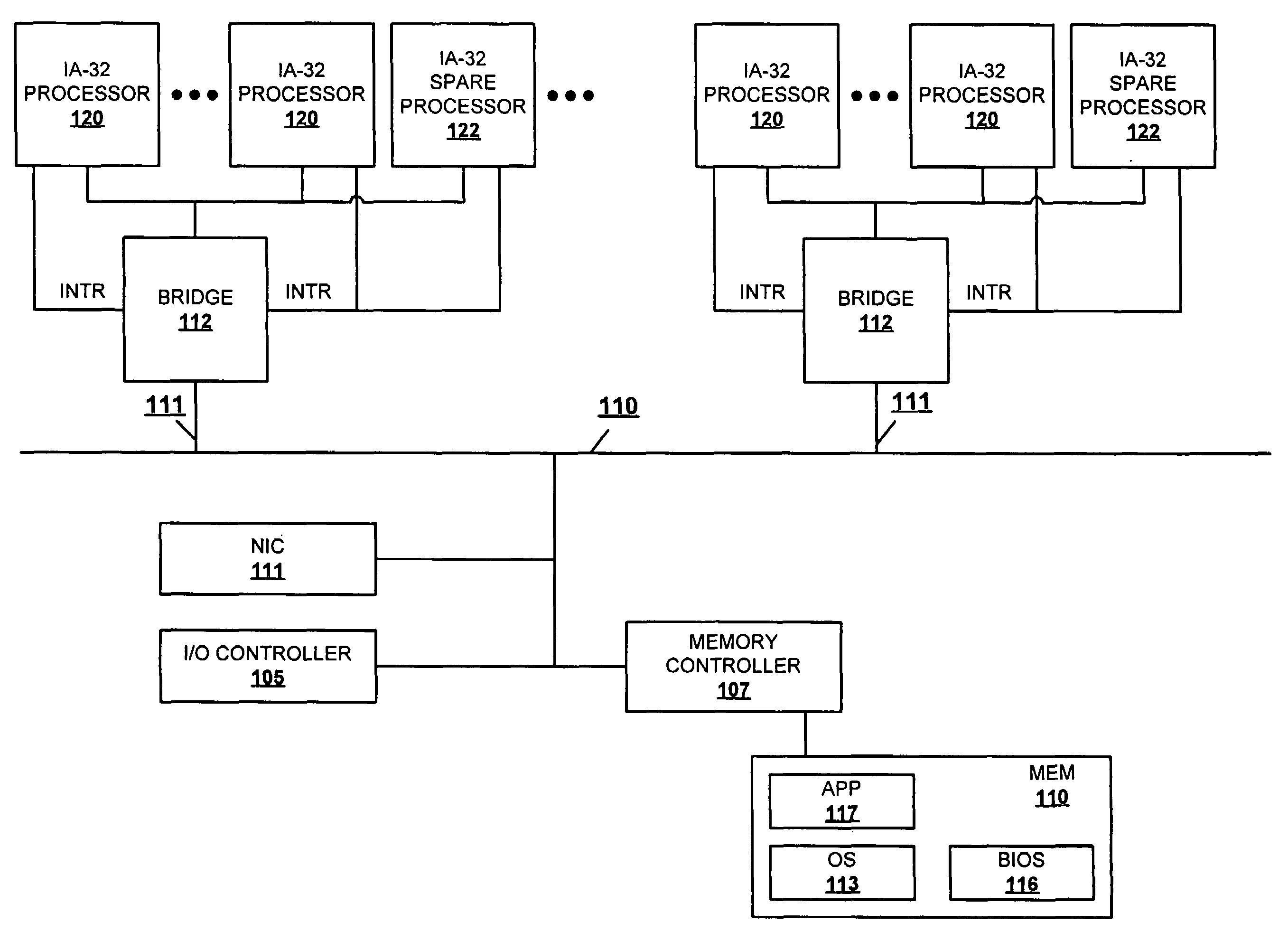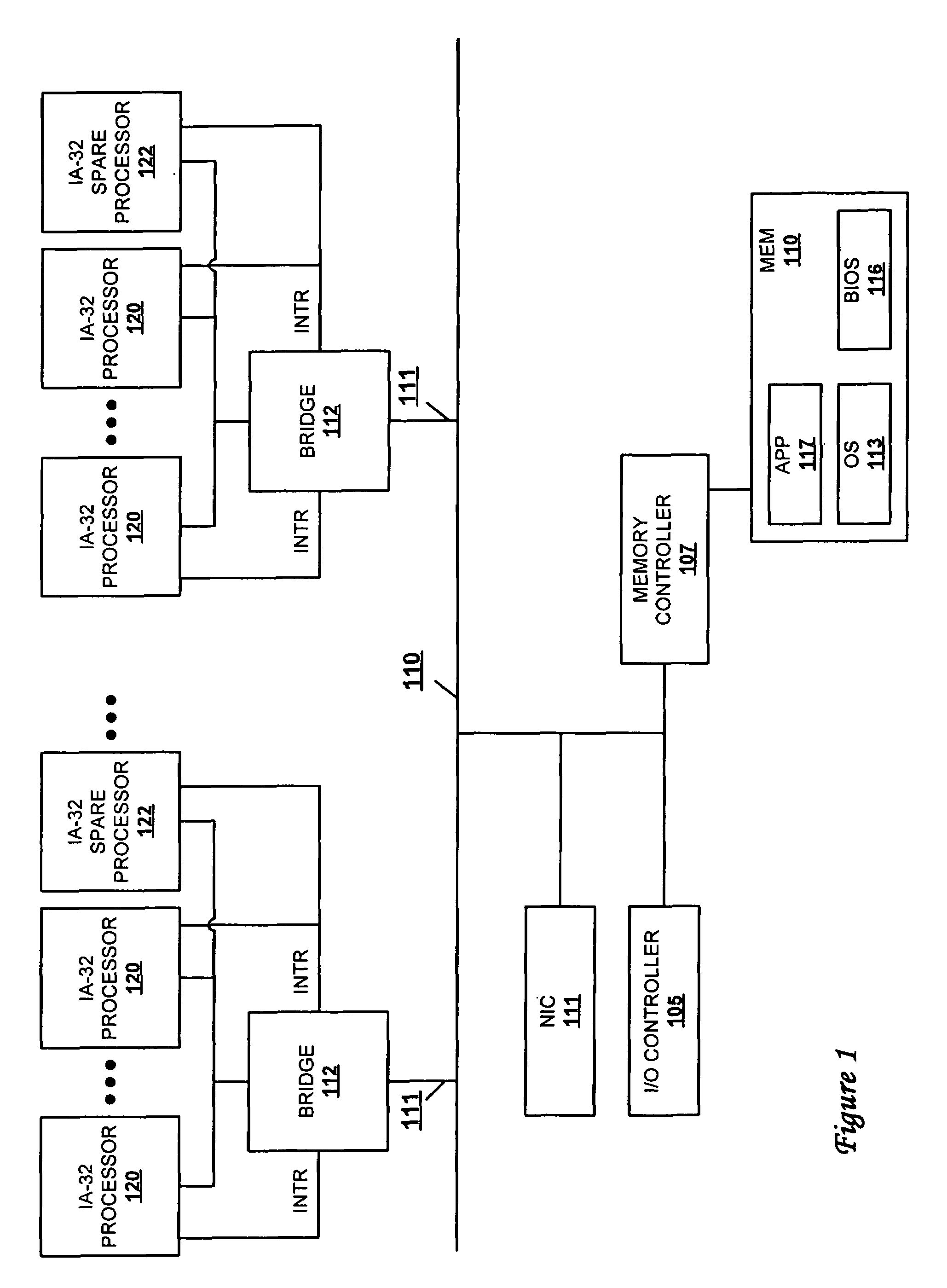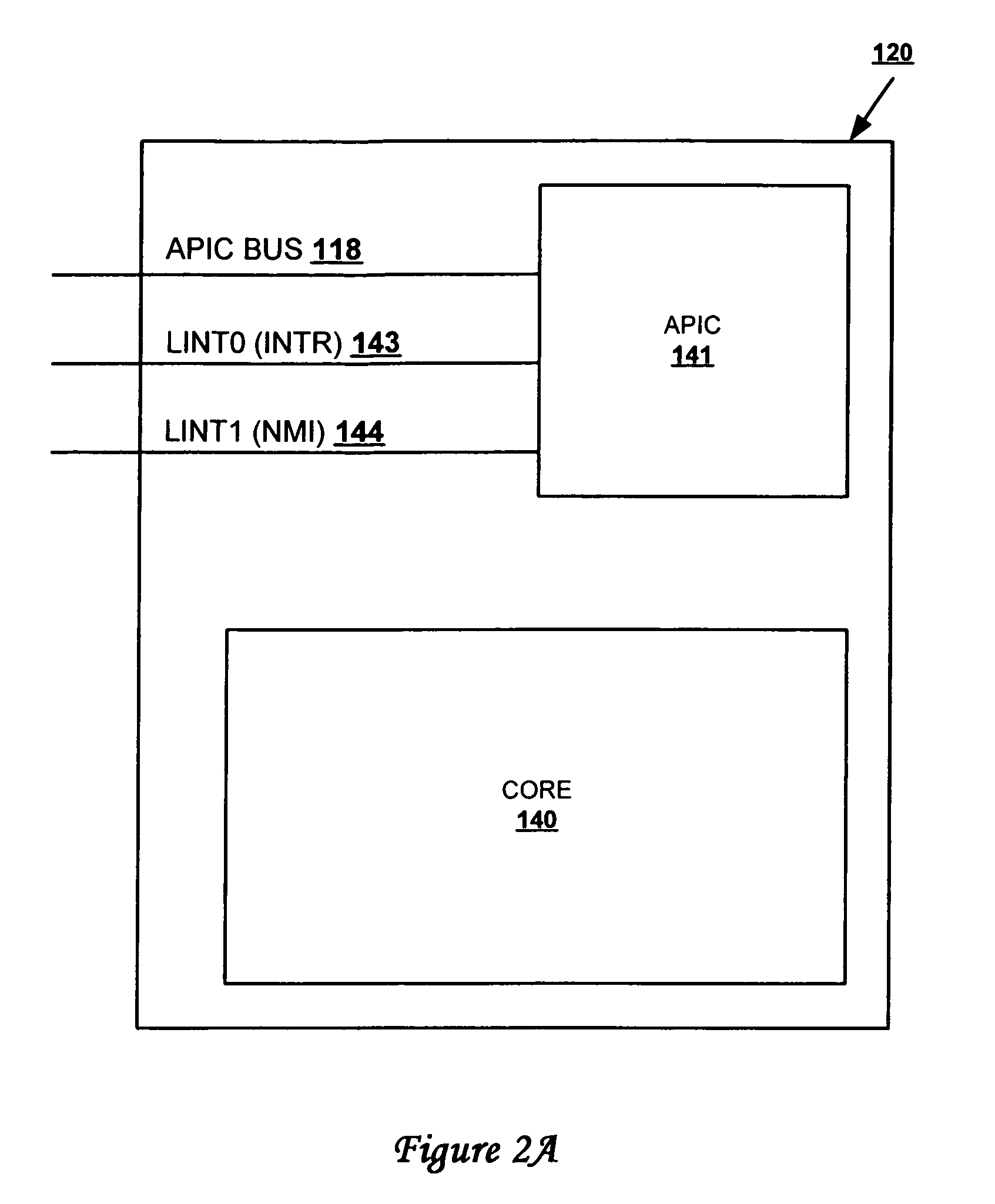Autonomous fail-over to hot-spare processor using SMI
a hot-save processor and auto-failure technology, applied in the field of data processing systems, can solve the problems of time required to replace the processor, unacceptable critical process downtime, and one (or more) of the processors to fail,
- Summary
- Abstract
- Description
- Claims
- Application Information
AI Technical Summary
Benefits of technology
Problems solved by technology
Method used
Image
Examples
Embodiment Construction
)
[0023]The present invention provides a method for dynamically replacing failing processors in a IA-32 configured multiprocessor computer system (MP) by providing the MP with a spare processor that is initially held-off and is later brought into the group of executing processors whenever one of the main processors is detected as failing. The invention provides a substantially seamless transfer of executing processes from the failing processor to the replacement processor, without halting the execution of the operating system (OS) and / or applications on the overall MP. That is, a failing processor is able to autonomically fail-over to a hot-spare processor without affecting the OS or executing applications. The failure response method of the invention is completed without requiring special hardware instructions built into the processors.
[0024]With reference now to the figures and in particular to FIG. 1, there is illustrated a multiprocessor system (MP) designed with a spare processo...
PUM
 Login to View More
Login to View More Abstract
Description
Claims
Application Information
 Login to View More
Login to View More - R&D
- Intellectual Property
- Life Sciences
- Materials
- Tech Scout
- Unparalleled Data Quality
- Higher Quality Content
- 60% Fewer Hallucinations
Browse by: Latest US Patents, China's latest patents, Technical Efficacy Thesaurus, Application Domain, Technology Topic, Popular Technical Reports.
© 2025 PatSnap. All rights reserved.Legal|Privacy policy|Modern Slavery Act Transparency Statement|Sitemap|About US| Contact US: help@patsnap.com



